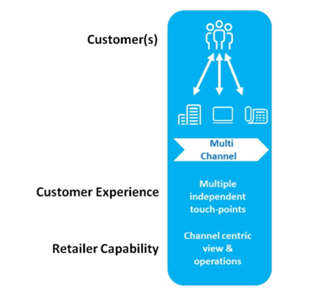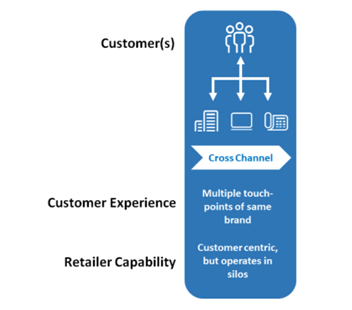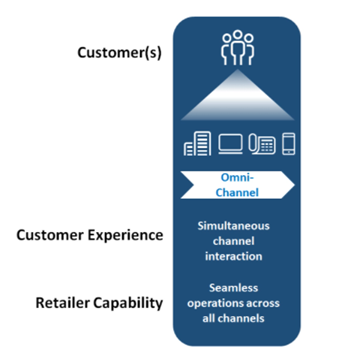Whether you are just founding your business or are an experienced company owner, you undeniably will come to the point when you start considering online marketing. And you will come across such notions as multi-channel, cross-channel, and omni-channel marketing. Are they the same? Different? And if they differ, then how? And what kind should I choose for my business? These questions may bombard your head, and it is natural. So, let us figure out what these 3 types of marketing are, how they differ, and how they interrelate. Let’s start!
Contents
Multi-channel marketing: multiple but separate
Modern marketing strategies (both offline and online) impress by the variety of tools to reach the audience, attract new customers, and promote your business. That is why it would be strange not to take advantage of and use the benefits and implement a few of the channels in your marketing campaign. This is exactly what the multi-channel marketing concept suggests.

Let’s say you are an owner of a clothing store in Toronto, Canada and want to promote coats before the season starts. How can you do that? You may print advertising in the local newspaper, place banners in the city, and hang out flyers with the announcement of the new winter collection at your store. TV or radio advertising or even both may become a variant. At the same time, you may launch Facebook and Instagram ads. So, you are using a few channels: newspaper, banners, flyers, radio, and social media. All of them provide the same announcement about the new winter collection. A potential buyer may see the information once or a few times before he/she gets convinced to at least visit your store.
Multiple channels are engaged to achieve one common goal, but they are not connected in any way. Newspaper advertising can continue working and bringing customers even when you stop advertising on Instagram or radio as they are not interrelated. Best of all, it works for the new businesses allowing fast and effective promotion of the brand or company and attracting many potential customers from various channels, as the audience coverage is colossal.
Cross-channel marketing: multiple and connected
Cross-channel is the advanced marketing strategy that derived from the multichannel. Why is it advanced? The answer is because all the channels you use for the implementation of your marketing campaign interact and implement each other. Moreover, their aims may differ, but in anyway, they contribute to the general goal of your company’s promotion. Let’s consider it in more detail.

For example, you hang out flyers or print advertising about the new winter collection at your store and add a QR- code that the client may scan to visit your website or download an app. Once he/she does it and, let’s say, buys something, you may send them a follow-up email (the address they are likely to leave when registering or purchasing online) with a discount/personal proposal/bonus/future sales announcement, and so on. If they didn’t buy anything, you might remind them on social medial like Facebook or Instagram about the things they’ve viewed with the help of targeted and retargeting ads. You may also use contextual advertising when Google shows ads of your store when people google something online, and it suits the context of their search inquiry. The marketing combinations here are endless.
As you see, you also use different marketing online and offline channels, but they interact. Some of them aim at informing about something, the others advertise and call to buy or want to return the customer to conduct the second purchase. In any way, all together they aim at promoting your store, bringing you more customers, and increasing sales.
Omni-channel marketing: multiple and interactive

This is the most advanced and innovative digital marketing strategy that involves the interaction of multiple channels not just with one another but with the customer in the first turn. At the present stage, the biggest world’s brands are actively implementing this strategy as the competition is extremely high in this business segment, but middle business companies are actively taking the initiative for their marketing campaigns. Let’s examine it closer.
Final word
So, this was the basic comparison of multi-channel vs omni-channel and cross channel communication. As you see, the concepts are close, and one derives from the previous one. It is explained by the gradual development of the market, advertising, Internet, and digital technologies that allowed bringing marketing to a quality new level. Involving various channels of promotion, they suppose different degrees of interaction with the customer and one another. Multi-channel marketing is a pioneer of strategies that involves various channels of advertising. They work separately and are not interrelated or connected. Cross-channel communication supposes applying a few different channels that interact to reach the common goal. Omni-channel marketing is the most innovative and advanced marketing strategy where not just the channels themselves are connected, but they interact with the clients.
Every strategy is effective. The question is for what kind of business. To find out what methods would work the best for your company, you would need a consultation with digital marketing specialists.












